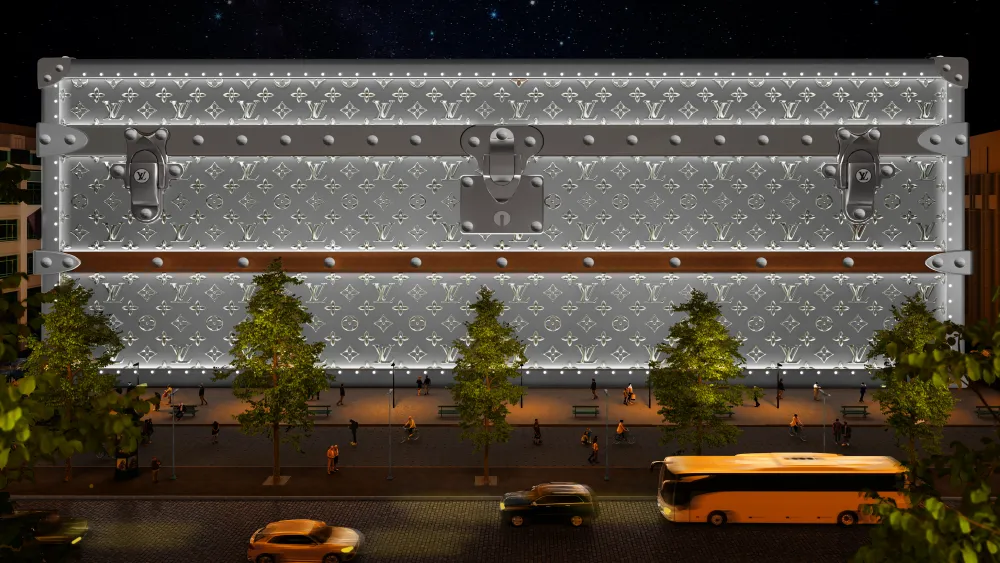Louis Vuitton, the unrivaled symbol of opulence and elegance, is embarking on a groundbreaking venture into the realm of hospitality. The French fashion house, revered for its iconic monogrammed leather goods, meticulous craftsmanship, and storied heritage dating back to 1854, is set to unveil its inaugural hotel on the prestigious Champs Elysées in Paris. This audacious move marks a significant expansion beyond Louis Vuitton’s traditional product range, signaling an evolution in the brand’s narrative.
The chosen location for this opulent endeavor is a historic building at 103–111 Avenue des Champs Elysées, presently housing Louis Vuitton’s corporate offices. This building, with a legacy as a hotel constructed for the 1900 Universal Exhibition and later occupied by HSBC, holds a unique historical resonance. Acquired by Louis Vuitton in 2018, it stands near the brand’s flagship store at 101 Avenue des Champs Elysées, established in 2005.
The Vision Unveiled: The envisioned hotel project is not merely a physical space; it is a testament to Louis Vuitton’s commitment to showcasing its savoir-faire, art de vivre, and innovative spirit. Anticipated to be completed within five years, the hotel aims to transform the historic building into a holistic luxury destination, echoing the brand’s values, aesthetics, and heritage.
Prime Location: Nestled on the Champs Elysées, one of the world’s most iconic avenues, the hotel strategically places Louis Vuitton in the heart of Paris’s fashion and cultural epicenter.
Comprehensive Offering: Beyond the realms of a traditional hotel, Louis Vuitton’s vision encompasses the integration of its largest global store, a restaurant, a café, a chocolate shop, and an exhibition space. This multifaceted approach aims to provide visitors with a diverse range of experiences, blending retail, dining, and cultural elements.
Panoramic Views: Guests are promised panoramic views of the Champs Elysées, the Arc de Triomphe, and the Eiffel Tower, adding a layer of allure to the overall experience.
Motivations and Implications: Brand Image and Reputation: Louis Vuitton’s entry into the hospitality sector serves as a strategic move to reinforce its image as a trailblazer and trendsetter in the luxury industry. By situating the hotel in a location synonymous with style and culture, the brand asserts its presence and influence in the city celebrated as the global capital of fashion.
Customer Experience and Loyalty: The hotel, envisioned as more than a temporary residence, aims to elevate the customer experience into a realm of immersive luxury. By offering a spectrum of amenities and activities, including shopping, dining, entertainment, and cultural exploration, Louis Vuitton seeks to create a holistic and unforgettable experience for its guests. The goal is not merely accommodation; it is about fostering lasting relationships, loyalty, and a sense of community among patrons who resonate with the brand’s vision.
Challenges and Risks: Paris, a city adorned with renowned luxury hotels such as the Ritz and Plaza Athénée, poses a challenge of differentiation. Louis Vuitton’s hotel must distinguish itself in a landscape already teeming with high-quality services. Additionally, it competes not only with other hotels but with neighboring luxury brands like Chanel, Dior, Hermès, and Cartier, each with its flagship stores on or near the Champs Elysées.





